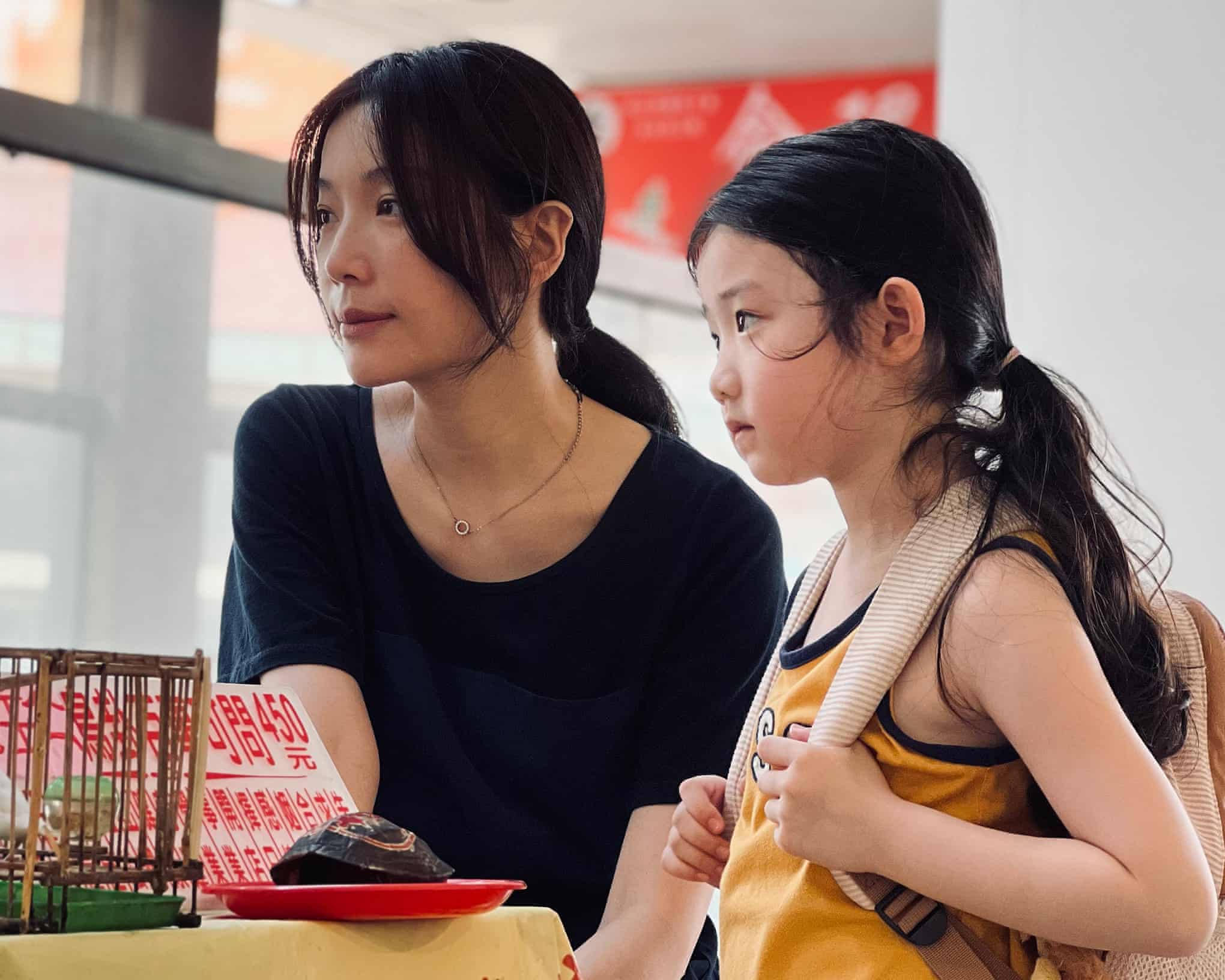Entertainment
Shih-Ching Tsou Transforms Childhood Trauma into Film with “Left-Handed Girl”

Shih-Ching Tsou, a Taiwanese-American filmmaker, has turned her childhood trauma into a compelling narrative in her new film, Left-Handed Girl. The film, which premiered at the prestigious Cannes Film Festival, dives into the complexities of cultural identity and familial relationships through the lens of a young girl grappling with her identity as a left-handed child in a society that views it as taboo.
Growing up in Taipei, Tsou experienced a pivotal moment when her grandfather told her, “The left hand is the devil’s hand.” This remark, made during a casual cooking session, was a revelation. It highlighted how her natural inclination to use her left hand had been suppressed, a sentiment echoed by her mother, who had been forced to conform to right-handed standards in her own childhood.
The film follows the story of I-Jing, a sweet-natured five-year-old girl portrayed by Nina Ye. I-Jing struggles with her identity, believing her left hand embodies a certain sinfulness. Tsou crafted this narrative to reflect not only her personal experiences but also broader themes of family dynamics, societal expectations, and the struggles faced by women in Asian cultures.
Tsou emphasizes that the film is deeply personal. “I want to challenge the outdated traditions that dictate how we should behave,” she explains during a video call from the Zurich Film Festival. Her own experiences of feeling like an outsider due to her left-handedness are mirrored in I-Jing’s journey, as she navigates familial pressures and societal norms.
The casting process for I-Jing was serendipitous. Tsou discovered Ye through a casting director and was surprised to learn that Ye, too, had been corrected to use her right hand. “We had to retrain her to use her left hand. When I heard, I was like, ‘Oh, my God, this still exists,’” Tsou recalls. This shared experience not only added authenticity to the film but also reinforced the ongoing relevance of the themes it explores.
Shot entirely on iPhones, Left-Handed Girl presents a raw and intimate portrayal of family life. The film highlights the struggles of I-Jing’s mother, Shu-Fen, portrayed by Janel Tsai, who grapples with financial difficulties as a noodle stall owner. Meanwhile, I-Jing’s rebellious older sister, I-Ann, played by Shih-Yuan Ma, faces the consequences of an affair with her married boss. These intertwined stories reveal the complexity of familial bonds and the societal pressures that can fracture them.
Tsou’s journey as a filmmaker is marked by significant milestones. After moving to the United States for her education, she encountered a culture vastly different from her own. She initially left her parents’ home at the age of 14, which shaped her understanding of independence and rebellion. “I was very rebellious. I would talk back,” she admits. This rebellious spirit has fueled her creative endeavors, leading her to collaborate with renowned director Sean Baker. Their partnership dates back to their time at The New School, where they bonded over a shared love of cinema.
Despite the challenges of securing funding for Left-Handed Girl, Tsou remained committed to her vision. The script, developed over a decade, reflects her dedication to addressing issues of cultural identity and societal expectation. She highlights the fulfillment she found in working alongside Baker on films like Tangerine and The Florida Project, which have garnered critical acclaim.
As a busy mother herself, Tsou acknowledges the importance of balancing her career with family life. “I want to spend as much time as I can with my daughter, because once she turns into a teenager, she will probably never talk to me again,” she jokes. This sentiment resonates throughout the film, where the bond between I-Jing and her family is central to the narrative.
Since its release, Left-Handed Girl has resonated with audiences, particularly left-handed individuals who share similar experiences of being corrected. Tsou recalls a touching encounter with Ye’s mother, who revealed that the actress’s grandmother had since changed her views on left-handedness, saying, “OK, I don’t want to correct you any more.” This shift in perspective highlights the film’s underlying message of acceptance and the need to challenge outdated beliefs.
Tsou hopes that her film will inspire viewers to reflect on their own cultural traditions. “I want people to watch the film and think: is there any outdated tradition I should reinvent to create a new one that’s fair to everybody?” she states.
With its release in the UK set for November 14, 2023 and its arrival on Netflix on November 28, 2023, Left-Handed Girl stands as a testament to the power of storytelling in confronting societal norms and embracing individuality. As Tsou’s narrative unfolds, it invites audiences to engage with their own histories and consider the transformations necessary for a more inclusive future.
-

 World5 months ago
World5 months agoSouth Korea’s Foreign Minister Cho Hyun to Visit China This Week
-

 Business5 months ago
Business5 months agoStarling Bank Plans Secondary Share Sale, Targeting $5.4 Billion Valuation
-

 Top Stories5 months ago
Top Stories5 months agoMunsang College Celebrates 100 Years with Grand Ceremony
-

 World5 months ago
World5 months agoPAS Aims to Expand Parliamentary Influence in Upcoming Election
-

 Business7 months ago
Business7 months agoKenvue Dismisses CEO Thibaut Mongon as Strategic Review Advances
-

 Lifestyle6 months ago
Lifestyle6 months agoHumanism Camp Engages 250 Youths in Summer Fest 2025
-

 Sports6 months ago
Sports6 months agoDe Minaur Triumphs at Washington Open After Thrilling Comeback
-

 Sports7 months ago
Sports7 months agoTupou and Daugunu Join First Nations Squad for Lions Clash
-

 Top Stories7 months ago
Top Stories7 months agoColombian Senator Miguel Uribe Shows Signs of Recovery After Attack
-

 World7 months ago
World7 months agoASEAN Gears Up for Historic Joint Meeting of Foreign and Economic Ministers
-

 Health6 months ago
Health6 months agoNew Study Challenges Assumptions About Aging and Inflammation
-

 Business7 months ago
Business7 months agoOil Prices Surge Following New EU Sanctions on Russia









